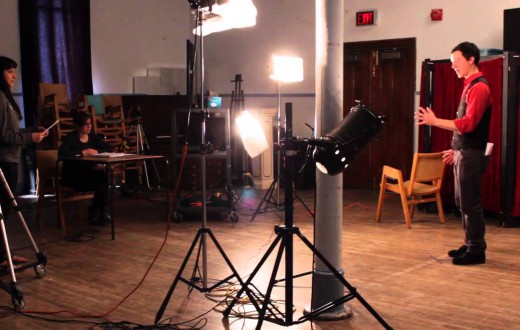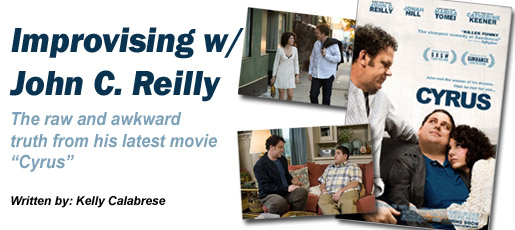“I’ll always be there because I’m a skilled professional actor. Whether or not I’ve any talent is beside the point.” –Michael Caine
Many people fall into the trap of thinking of our favorite actors as almost super-human: we revere them as god-like and uniquely talented individuals. We mere mortals can only gaze at them from afar and envy their natural-born gifts.
And yes, of course talent is an important component of anyone’s career in any field, despite the fantastic Mr. Caine’s quote above. If you have no talent for math, you’re not likely to be a very successful mathematician, no matter how passionate you are about it.
However, for actors it’s important to note that you can have all the talent in the world, but if you routinely break any one of the following rules, you are not likely to get very far. Keep taking your classes, keep working on your improv, keep developing new dialects and physical talents like combat and dance skills. But also keep these ironclad rules in mind.
1. Don’t Be Late. Just Don’t.
This is just so basic that it’s almost laughable that it’s something that has to be reiterated. Or it would be laughable if so very many actors didn’t violate this most basic of rules–a rule not only for acting, but for life. If you roll in to your auditions and rehearsals and, god forbid, shooting day call times all sweaty, out of breath and late, you are creating an impression of yourself as someone who is unprepared, uncommitted, and inconsiderate. I had a director who used to put it this way: “If you’re late, you’re stealing time from your colleagues. You are sending a message that your time is more valuable than ours.” Yes, stuff happens. We’ve all had days where the alarm didn’t go off or the traffic was crazy. But seriously now, there are people that these sorts of things seem to happen to every other day–you know who you are! If you want to be taken seriously as a professional actor, you have to start with being professional, and that means being on time.
2. Work On Your Work Ethic
How many of you have non-actor friends or relatives who think that what we do is a lazy, cushy job that consists mostly of sitting around in luxurious trailers while being fed peeled grapes by charming Pas while playing Xbox? Yeah, sorry Uncle Mike, that’s not how it works for the vast majority of us. And even when actors reach the level where the job does include a nice trailer and so forth, top actors are regularly putting in 12-hour-plus days. And don’t forget, they’re required to be on point throughout, bringing their A-game every day of the shoot, and every time they step in front of the camera, whether it’s at 7am or 10pm. Let’s see Uncle Mike do that at his job, right? You don’t get to hide out in your cubicle on bad days when you’re an actor. Your dedication to the work and your willingness to step up and bring it every moment you’re on set, on stage or in rehearsals is something that shows. You will cement a reputation that will stick with you long after that project is completed–for good or for ill.
3. Adjust That Attitude
Your approach to the work is almost as important as the actual doing of the work itself. That is, the attitude you adopt when you get asked to try something different or do yet another take is something that reads. It registers with the people you’re working with–and the people you’re working for. Keep in mind too something we all know as actors: communication runs far deeper than the words we say. Try to be aware that a bitchy attitude is apparent even without opening your mouth. Some studies have demonstrated that up to 90 percent of human communication is non-verbal. Make sure you’re saying positive, nice things with your entire instrument.
4. An Open Book
Being open to suggestions and change is something that ties in closely with the above-mentioned items, but it still deserves its own space. The actor who is willing to innovate and take unexpected direction and adapt an attitude of play toward the work of acting is always going to be more sought-after than someone who is rigid and stuck in one mode of thinking. Acting is always, always a collaborative process. Even a one-man show has a director. So make sure you’re open to not only direction but also to whatever your fellow actors bring to the table. Even in auditions this a valuable skill that has very little to do with the talent you have: the ability to go with the flow and see what happens.
5. Do Your Homework
This may also seem like another no-brainer, but it’s again alarming how many actors go to auditions without having read up on what they’re reading for, and, perhaps even more shocking, come to set without having learned their lines. Being the guy or gal who shows up calm, confident and fully in control of themselves and their character makes you the actor who makes the rest of the cast look their best–along with the director, producer and casting director! These are the actors people want to work with again! Talent be damned–if you show up flustered, hung over and not knowing your lines or having a solid handle on the part and the piece you’re auditioning for, you’re shooting yourself in the foot.
Remember too that a big part of becoming a successful actor is being in the right place at the right time. So make sure you signup for NYCastings free casting alerts in your area, as well as self-submitting to the NYCastings Casting Notices page to give yourself a chance to be seen or your next gig!







